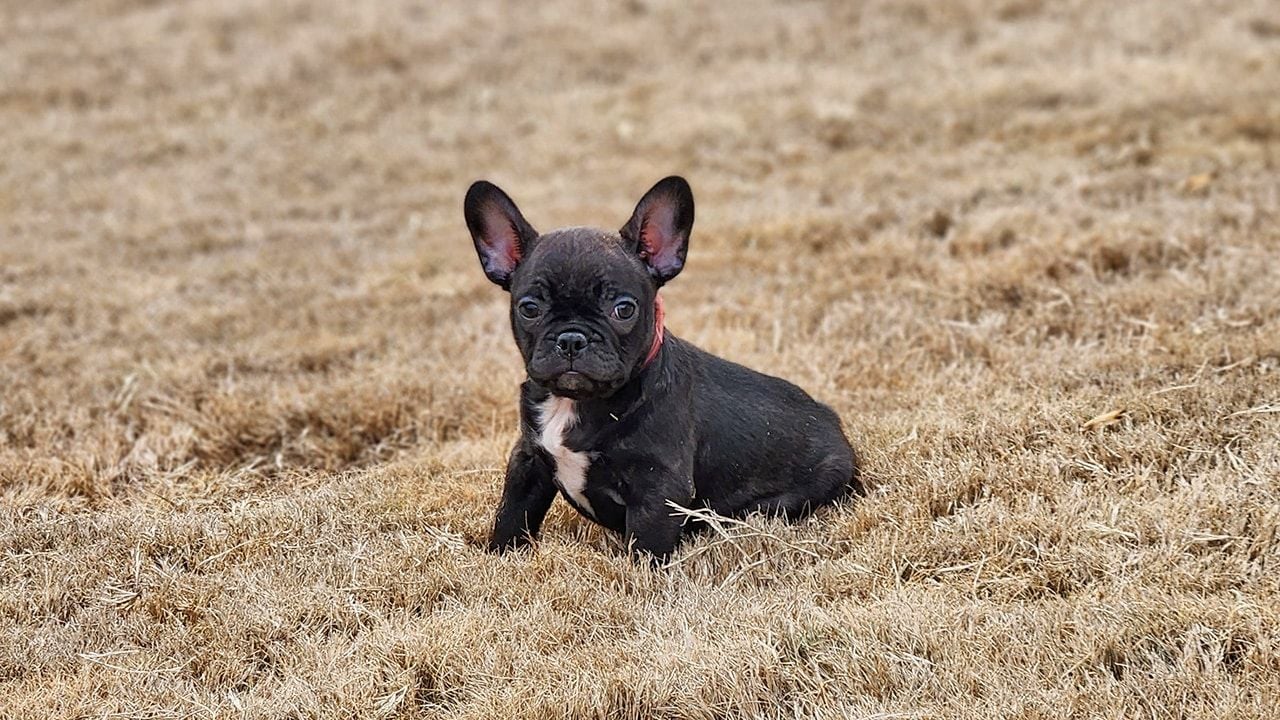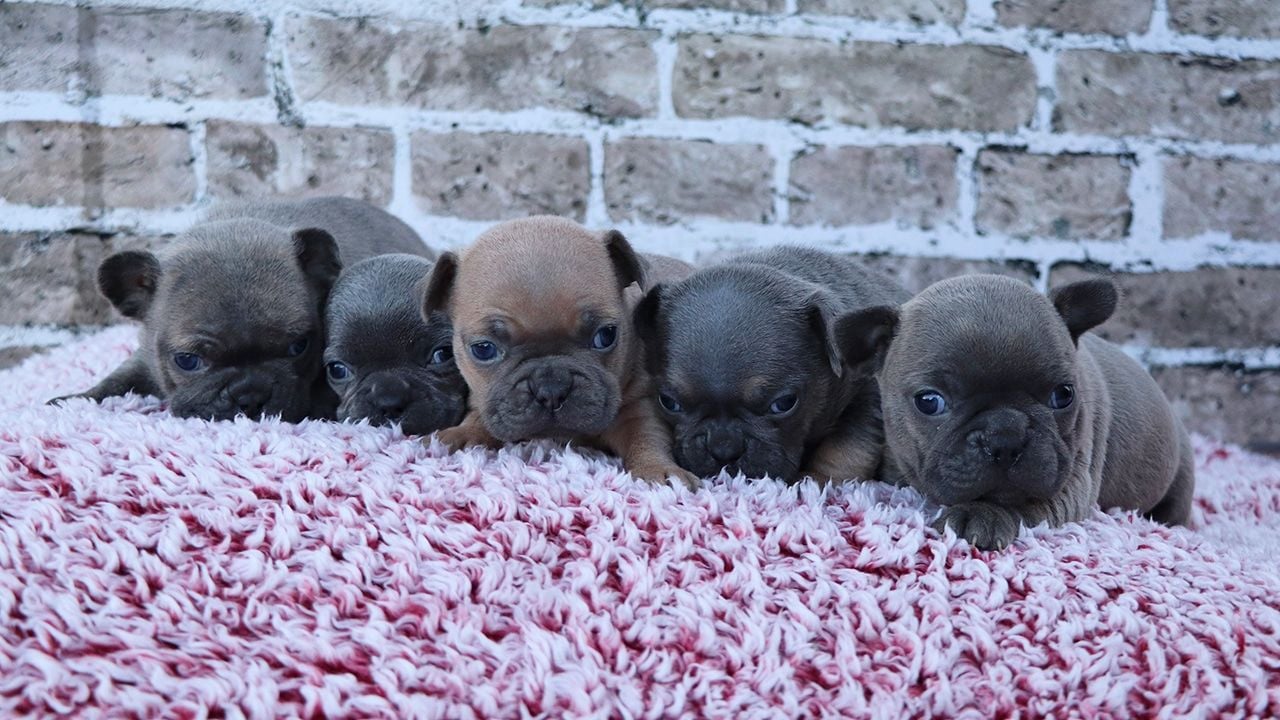What Is A
Frenchton?
A Frenchton is a mix between a French Bulldog and a Boston Terrier.
A Frenchton is an affectionate, playful, and adaptable designer breed that combines the best traits of the French Bulldog and Boston Terrier. This hybrid breed has gained popularity due to its charming personality, sturdy build, and healthier genetic profile compared to its purebred parents. Whether you’re considering bringing a Frenchton into your home or simply curious about this lovable companion, this guide will provide comprehensive information about their history, physical traits, temperament, and care needs.
Origin & History
The Frenchton was first bred in the 1990s. Breeders wanted a dog with the sweet personality of a French Bulldog but with better health and more energy. The goal was to reduce breathing problems seen in French Bulldogs while keeping their cute appearance. Over the years, Frenchtons have become a beloved choice for pet owners seeking a small, adaptable, and affectionate companion.
Parent Breeds: French Bulldog & Boston Terrier
- French Bulldog: Originally from England, this small bulldog became popular in France. It has big bat-like ears and a charming personality. However, French Bulldogs often have breathing problems.
- Boston Terrier: This breed comes from the United States. It is small, smart, and strong. Boston Terriers are full of energy and are great family pets.
By mixing these two breeds, Frenchtons get the best qualities from both—keeping the small size and loving nature of a Frenchie, while having more energy and better health from the Boston Terrier.
Physical Characteristics
Size & Weight
Frenchtons are small to medium-sized dogs. They usually weigh 15-25 pounds and stand 11-16 inches tall. Their muscular build makes them look strong but compact. Some Frenchtons may be on the smaller or larger side depending on which parent breed they take after more.
Coat & Colors
- Coat Type: Short, smooth, and easy to care for.
- Common Colors: Brindle, fawn, black, white, cream, and pied.
- Shedding: Frenchtons shed a little but are easy to groom. They are not hypoallergenic but require minimal brushing.
Distinctive Features
- Ears: They can have bat-like ears like a French Bulldog or upright ears like a Boston Terrier.
- Face & Muzzle: Their snout is shorter than a Boston Terrier’s but longer than a French Bulldog’s, which helps with breathing.
- Body Structure: Compact, muscular, and balanced, with a slightly longer body than a French Bulldog.
- Eyes: Typically round and expressive, with a sweet, inquisitive look.
Personality & Temperament
Frenchtons are loving, playful, and friendly. They are great for families, singles, and seniors.
Key Personality Traits:
- Loyal & Affectionate: Frenchtons love their owners and enjoy cuddling.
- Playful & Energetic: They like to play but also enjoy relaxing.
- Social & Friendly: They get along well with kids and other pets.
- Stubborn but Smart: Training a Frenchton takes patience, as they can be a little independent.
- Adaptable: They adjust well to different living environments, from apartments to large homes.
They are great apartment dogs because of their small size. However, they do not like being alone for long. If left alone too long, they may develop separation anxiety.
Exercise & Activity Levels
Frenchtons need 30-45 minutes of exercise daily. They enjoy:
- Daily Walks: Helps keep them fit and happy.
- Interactive Play: Games like fetch and puzzle toys keep their mind active.
- Indoor Activities: They are sensitive to hot and cold weather, so indoor play is best during extreme temperatures.
- Dog Parks & Socializing: They enjoy playing with other dogs in a safe environment.
They have short bursts of energy but also love to relax and cuddle.
Training & Socialization
Frenchtons are smart but can be stubborn, so training must be consistent and positive.
- Start early: Puppies should be socialized early to prevent shyness.
- Use rewards: Treats and praise work best.
- Be patient: Harsh training methods do not work well.
- Expose them to different places: This helps them grow into friendly and confident dogs.
- Crate training: Helps with housebreaking and provides a safe space.
Health & Lifespan
A Frenchton’s lifespan is 12-15 years. They are usually healthier than French Bulldogs but may still have some health issues.
Read more about Frenchton Lifespan and Proven Way to Get Longer Life.
Common Health Issues
- Breathing Problems: Due to their short nose, some Frenchtons may struggle with breathing.
- Weight Gain: They can get overweight easily, so portion control is important.
- Knee Issues: Small breeds like Frenchtons can have patellar luxation (loose kneecaps).
- Skin Allergies: Some Frenchtons have sensitive skin.
- Eye Problems: They may develop cherry eye or cataracts.
- Heat Sensitivity: Due to their short snout, they can overheat quickly in warm weather.
Regular vet check-ups and a proper diet can help keep your Frenchton healthy.
Diet & Nutrition
A healthy diet keeps a Frenchton happy and active.
- High-protein food supports their energy levels.
- Controlled portions prevent obesity.
- Omega-3 supplements help with coat and joint health.
- Avoid toxic foods like chocolate, grapes, and fatty treats.
- Fresh water should always be available.
Grooming & Maintenance
Frenchtons are low-maintenance but still need regular care:
- Brushing: Once or twice a week to manage shedding.
- Bathing: Every 4-6 weeks or as needed.
- Nail trimming: Monthly trims prevent overgrowth.
- Ear cleaning: Weekly checks help prevent infections.
- Teeth brushing: Regular cleaning prevents dental disease.
- Wrinkle Care: If your Frenchton has facial wrinkles, clean them regularly to avoid infections.
Frenchton’s Suitability for Different Lifestyles
Frenchtons fit well in different homes:
- Apartments: Their small size makes them perfect for city living.
- Families: They are great with kids and other pets.
- Seniors & Singles: Their friendly nature and easy care make them excellent companions.
- First-time Owners: Their adaptable and loving nature makes them a great choice for new pet parents.
Finding & Choosing a Frenchton Puppy
If you want a Frenchton, here’s how to find the right one:
- Adopt from a reputable breeder who tests for health issues.
- Consider adoption from rescues and shelters.
- Ask about the parents to understand the puppy’s health.
- Ensure proper socialization before bringing them home.
- Meet the puppy in person to check temperament and health.
Conclusion
Frenchtons are loving, adaptable, and fun dogs. They are great for many different homes and families. If you want a dog that is small, affectionate, and playful, a Frenchton is a great choice. With the right care, training, and health management, they will bring joy and companionship for many years.
If you are ready to add a Frenchton to your family, check our available puppies for sale.
Interested in other breeds? Here is our official website for multiple breeds.
Common Questions About Frenchtons
Interested in the differences between a French Bulldog vs Frenchton?







